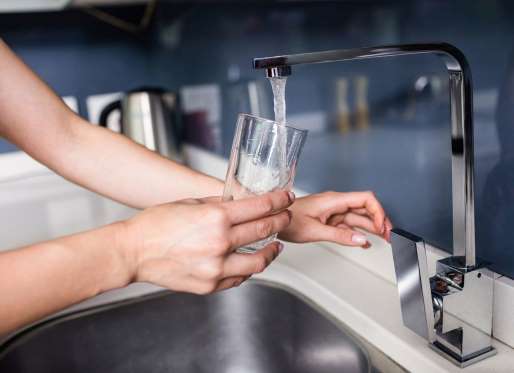UNUSUAL TASTE
Your taste buds have incredibly delicate sensors that protect you from bad or dangerous substances, including poor-quality water. If your water has a fishy, oily, bitter, or metallic taste, it may be time to look into buying a filter.
CHLORINE SMELL
Does your tap water smell like a swimming pool? Here’s why: Chlorine is added to public water supplies to remove bacteria or harmful microorganisms, and while it’s not typically found in dangerous amounts, it can make your beverages unappetizing. Consider buying a water filter to eliminate any trace of lingering chemicals.
SULFUR SMELL
If your water smells like rotten eggs, sulfur is to blame. The naturally occurring mineral is prevalent in some water systems but isn’t typically harmful. As with chlorine, a sulfur smell can be eliminated with a water filter.
FLAT BAKED GOODS
If your favorite French bread recipe falls flat, it may not be your fault. The same chlorine that is added to water treatment systems to kill harmful microorganisms can also wreak havoc on the beneficial bacteria (yeast) that makes bread or pizza dough rise. A water filter can often solve the problem with minimal effort and expense.
LOW WATER PRESSURE
If the kitchen faucet seems to be running more slowly than usual, you may have some clogged pipes. This can happen over time when pipes become corroded and then fill up with sediment and scale. Unfortunately, the only solution is running new copper or PVC plumbing throughout the house, which is an expensive (albeit necessary) project.
CLOUDY, FOAMY WATER
Many municipal water systems don’t filter out minerals and other naturally occurring substances from drinking water, and these harmless compounds can sometimes give water a cloudy or foamy appearance. If the clouds and foam do not disappear over time, however, they may be caused by bacteria. Have your water tested for contamination if the problem persists.
DIRT AND SEDIMENT
Have you ever seen dirt, sand, clay, or other sediments suspended in your tap water or settled in the bottom of your sink? Most of the time these particles aren’t dangerous, but they certainly aren’t attractive. Try installing a point-of-use sediment filter to alleviate the problem.
SPOTS, STAINS, AND SCALE
Some parts of the United States have naturally “hard” water, water that contains a high percentage of dissolved minerals like calcium and magnesium. Although hard water isn’t dangerous, it can prevent suds from lathering and reduce the effectiveness of dish soaps, hand soaps, and laundry detergent. Hard water also causes spotting and leaves scale deposits on glassware, serving pieces, and plumbing—thus shortening the effective lifespan of your hot water heater, boiler, and other appliances. To solve issues associated with hard water, install a water-softening system to remove excess minerals.












